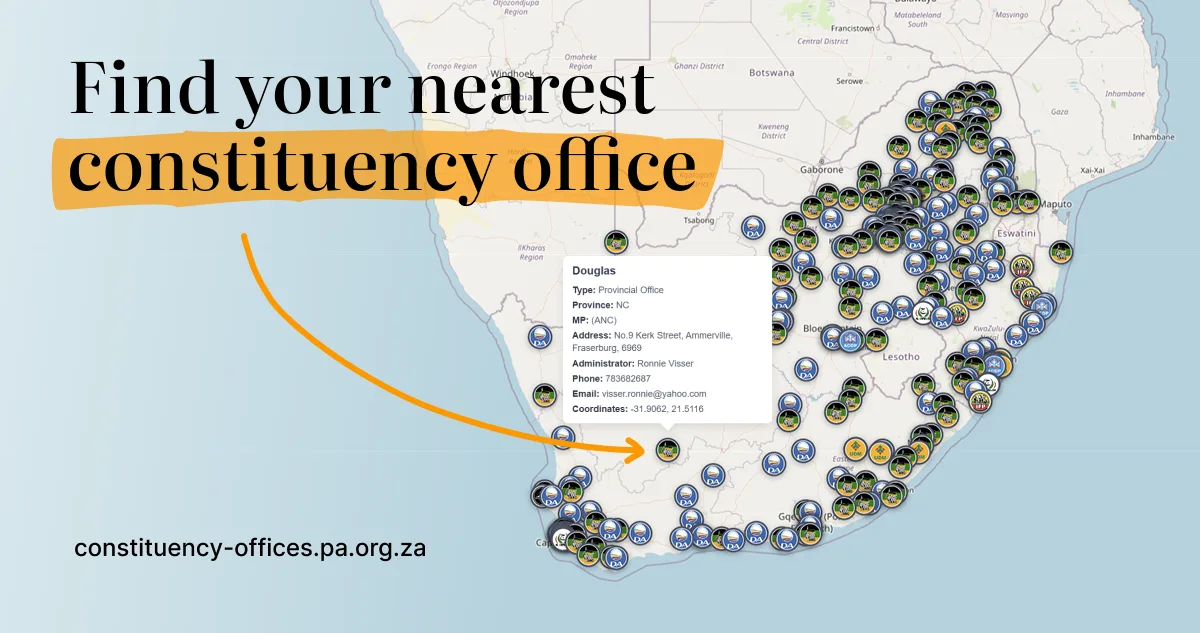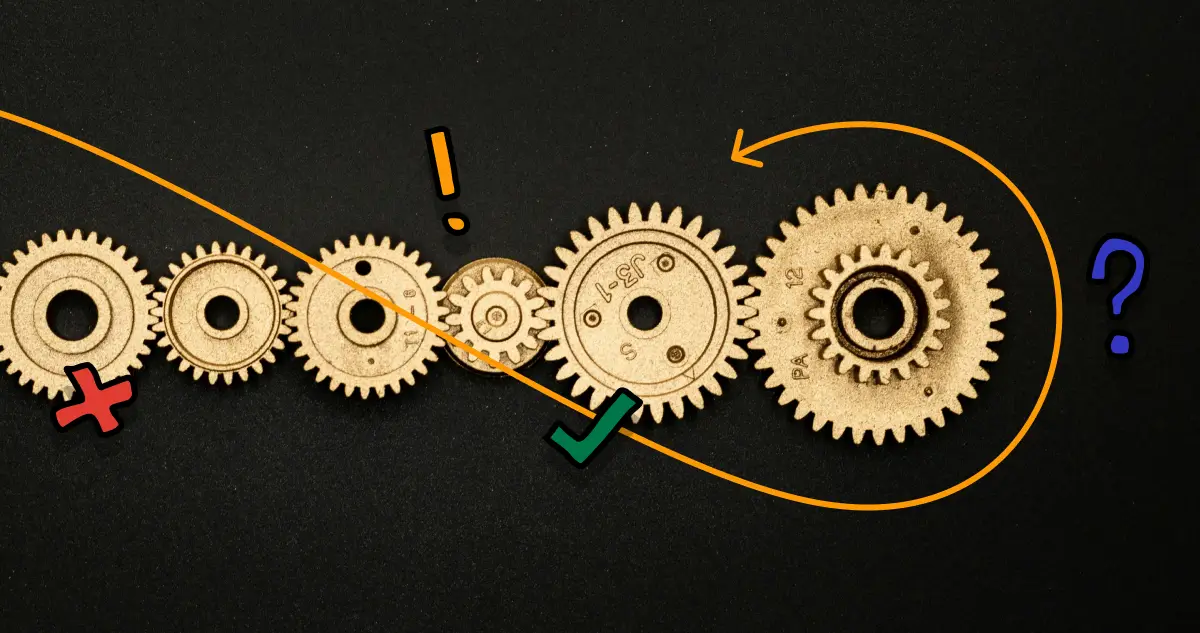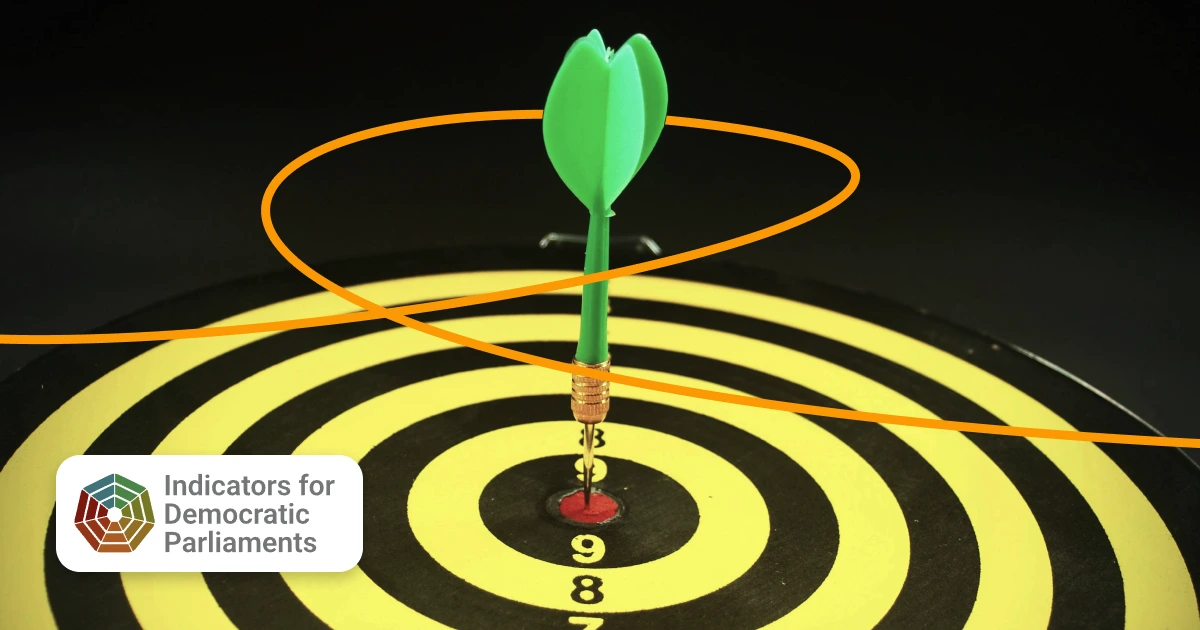Delving into the Indicators for Democratic Parliaments: Target 1 Effective Parliament and Target 2 Accountable Parliament
Parliament plays an important role in shaping South Africa’s democracy. Parliament is where laws are made, oversight is done, and the voices of all citizens are meant to be heard. However, the question is: “How well is Parliament performing these critical functions?”.
OUTA is conducting research on the Indicators for Democratic Parliaments (IDPs) framework. The IDPs are a global self-assessment tool grounded in the UN’s Sustainable Development Goals, specifically Targets 16.6 and 16.7. They measure how effective, accountable, transparent, responsive, inclusive, participatory, and representative parliaments are in practice.
There are 25 indicators that are broken down into 108 dimensions, all setting out goals that describe an ideal parliament. Each dimension has various criteria that Parliament is measured against, in total there are 500 assessment criteria. All together, they provide a comprehensive framework that helps Parliaments turn findings into actionable recommendations for improvement.
The research is conducted specifically on Target 1 Effective Parliament and Target 2 Accountable Parliament in order to shed light on both the progress and persistent challenges in strengthening parliamentary democracy.
Click here to explore the assessment.
Target 1: Effective Parliament
The first assessment focuses on parliament’s effectiveness by having the ability to create legislation, oversee the executive, and represent the people. While South Africa’s Constitution provides a strong foundation for parliamentary autonomy, political governance and various resource constraints often limit parliament’s independence in practice.
OUTA’s key findings include:
- Legislative and Oversight Effectiveness: Parliament largely fulfils its core functions, but inefficiencies, political tensions, and delays in reforms weaken its impact.
- Support for MPs: MPs have access to resources, but gaps in training and development hinders their performance. Smaller parties face certain challenges in participating on equal terms.
- Administrative and Budgetary Independence: Although parliament has a legal framework for managing its budget and administration, underfunding and slow adoption of digital technologies reduce efficiency.
- Transparency and Participation: Public access to parliamentary debates exists, but decision-making processes and records could be made more transparent and accessible.
OUTA’s recommendations call for strengthening resources, reducing political interference in setting agendas, and ensuring equal opportunities for all MPs. By investing in training, improving infrastructure, and employing transparency mechanisms will thus aid in creating a more effective parliament.
Target 2: Accountable Parliament
The second assessment scrutinises accountability, focusing on ethics, anti-corruption measures, financial transparency, and institutional integrity. South Africa has strong legal frameworks which includes the Prevention and Combating of Corrupt Activities Act and the role and responsibility of the Public Protector. However, implementation of these frameworks remain inconsistent and often undermined by political interference.
OUTA’s key findings include:
- Anti-Corruption: While laws exist, parliamentary committees tasked with oversight frequently lack the independence and resources to thoroughly investigate corruption.
- Transparency Gaps: MPs’ salaries are publicly available, but details of expenses and procurement contracts are difficult for citizens to access.
- Lobbying Regulation: There is no comprehensive legal framework governing lobbying, leaving legislative processes vulnerable to negative influences.
- Public Participation: Citizen engagement is often irregular and reactive, rather than proactive and structured.
- Institutional Integrity: Ethics codes exist but are unevenly enforced, and oversight committees frequently face political pressures.
OUTA’s recommendations include: ensuring real-time and user-friendly disclosure of parliamentary expenditures, strengthening parliamentary committees, and expanding digital platforms for public engagement.
So why does this matter?
These reports make it clear that while South Africa’s Parliament has a sound constitutional and legal framework, these are still various gaps that weaken its ability to live up to its democratic promise. Improving effectiveness and accountability is not just about internal reform, but also about rebuilding public trust in Parliament as a forum that truly serves the people.
What is the role of ParliMeter?
The ParliMeter Dashboard has incorporated a webpage that covers the IDPs in a user-friendly manner where users are able to view each indicator, its dimensions and the assessment conducted. Furthermore, OUTA's recommendations are also accessible in the drop-down menu. By providing real-time monitoring and easy to understand data, the platform empowers citizens, researchers, and civil society to track whether Parliament is living up to its constitutional mandate.
Conclusion
South Africa’s Parliament needs to develop stronger mechanisms for autonomy, better application of ethics, and create more open and inclusive participation. It can become a model of democratic accountability. But without meaningful reform, the same challenges will continue to break down the public’s trust.
With co-funding by the EU, OUTA, PMG and OpenUp are shining a light on Parliament’s performance. Through ParliMeter, this is the first step to improve and guide parliament on effectively and accountably working for all South African citizens.

Work with us
We are looking for resource and data partners!
If you or your organisation would like to contribute or collaborate, please get in touch.
You might also like

Strengthening transparency & responsiveness: What our latest IDP assessments reveal about Parliament

Know Your MP: Find Your Constituency Office and Make Your Voice Heard



